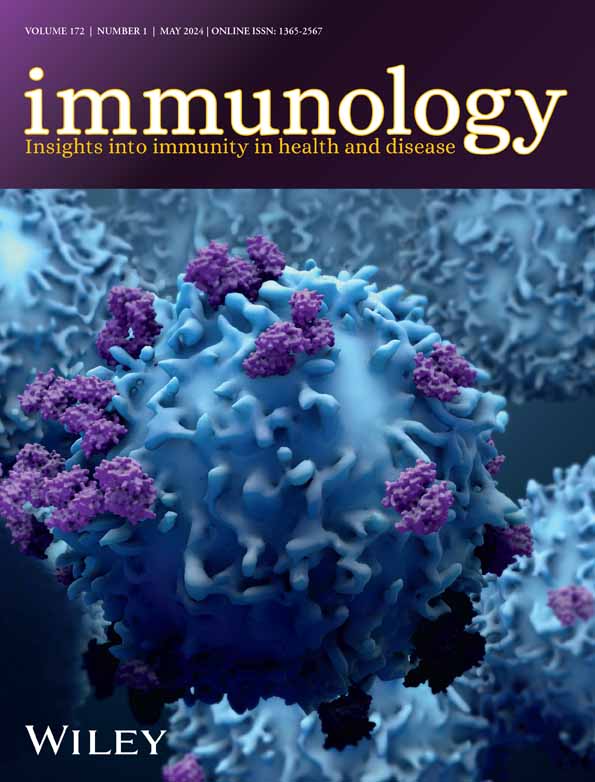Endogenous ERMAP Affects T-Cell Function in EAE Mice
Abstract
Multiple sclerosis (MS) is a central nervous system (CNS) autoimmune disease (AID) mediated by myelin-reactive CD4+ T cells. Experimental autoimmune encephalomyelitis (EAE) is a widely used animal model of human MS. Erythrocyte membrane-associated protein (ERMAP) is a novel erythrocyte-specific adhesion/receptor molecule associated with erythrocyte adhesion. We have previously characterised it as a novel inhibitory immune checkpoint molecule and demonstrated that recombinant ERMAP proteins ameliorate EAE; however, the specific mechanism of action of ERMAP and the effects of endogenous ERMAP on T-cell function are largely unknown. In this study, we investigate the role of endogenous ERMAP in T-cell and macrophage homeostasis and EAE development. We show here that erythrocyte membrane-associated protein (ERMAP) gene knockout (ERMAP−/−) mice have increased numbers of T cells and pro-inflammatory M1 macrophages and enhanced T-cell activation, as compared to wild-type (ERMAP+/+) mice. When induced to develop EAE, ERMAP−/− mice have more severe EAE symptoms and pathology, which are related to increased numbers of T cells (especially Th1 and Th17 T cells) and M1 macrophages, enhanced activation of T cells, and increased generation of inflammatory cytokines, but decreased proportion of Th2 T cells, regulatory T cells (Tregs), and anti-inflammatory M2 macrophages. Global gene analysis by RNA-seq shows that signalling molecules in the peroxisome proliferator-activated receptor (PPAR) pathway are decreased in ERMAP−/− mice. Our results suggest that endogenous ERMAP plays an important role in T-cell and macrophage homeostasis and EAE development.


 求助内容:
求助内容: 应助结果提醒方式:
应助结果提醒方式:


